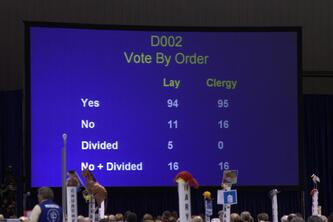
Tuesday morning in the shower, it hit me – the full weight of what had happened over the previous two days at General Convention. My emotions rose up, mixing tears with the warm water streaming down my face.
I was thinking about how the House of Bishops and the House of Deputies had both passed resolutions D019 and D002 that incorporate “gender identity and expression” into the non-discrimination canons for access to the ordination process and lay participation in The Episcopal Church. The positive comments and arguments given by supporting and allied deputies were on my mind, as well as the final vote tallies. An entire Christian denomination had just recognized and accepted trans people as valued members of the Church and removed barriers for their participation at all levels. The enormity and impact of the outcome of these events were best summed up by my friend Vivian who, when I asked her for the reason behind her own emotional response, said, “Oh, just this business of changing the direction of American Christianity.”
I was also remembering the previous evening, when trans people played a significant role in the Integrity Eucharist. When I and other trans folks walked into the large room where the service was being held, we were directed to the first two rows of the center section of seating, where we found on each chair a printed piece of paper that said, “Reserved for VIPs and Transgender service participants.” We also lead the procession to the stage, two columns of trans people leading TransEpiscopal members Reverend Cameron Partridge, Invocator of the service, and Reverend Carolyn Woodall, Deacon of the Eucharist, as well as Bishop Mary Glasspool, the Bishop Presiding and Bishop Gene Robinson, Preacher.
For his sermon, Bishop Robinson preached about the day, the passing of the two trans-inclusive resolutions and, in the House of Bishops, the passing of the trial liturgy for same gender blessings. For me, the remarkable aspect of the Integrity Eucharist was the high level of trans inclusion, including in Bishop Robinson’s sermon.
Clearly, these events could not have been realized without the support of friends and allies, including and perhaps especially members of IntegrityUSA and gay men, bisexual people and lesbians in the Church. I considered that as I stood there in the service, surrounded by hundreds of supportive people, listening to Bishop Robinson telling us in the trans community that our work is not finished, with the promise, "We'll have your back."
This last sentiment was a new concept for me, not so much in intent because I have heard similar sentiments often enough before, but in action. Since entering the GLBT community at the peak of the contentiousness around Rep. Barney Frank’s and the HRC’s 2007 actions to remove trans people from the protections of the Federal Employment Nondiscrimination Act (ENDA), I am afraid to say that I have been repeatedly disappointed by the “support” of our GL colleagues. My painful experiences in this regard have not been with the majority of the GL people with whom I have interacted, but there have been enough of them to render me jaded and cautious about overtures of support. I have spent too much of my energy in GLBT activism engaged in educating people in the GL community whom I always expect will know better but who too often do not. At times the behavior of well meaning allies has felt patronizing, and at times, attitudes have seemed dismissive or even downright hostile.
Fortunately, that has all been turned around at this General Convention and during the Integrity Eucharist the other night. I believe that Bishop Robinson is aware of the need for education of the “GL’s” about the “T’s” – he gave me hope during his sermon when he spoke twice to the non-trans people at the service, "Don't underestimate what there is to learn on this." In addition, the overwhelming support that was extended toward us trans folks was palpable. We were included, we were part of the collective spirit, and we were loved. I believe the Holy Spirit moved through everyone in that room that night, and I felt in communion with the hundreds of people there. When Bishop Robinson said, “We'll have your back,” I believed him.
What rose up in me in the shower and since then has been an overwhelming pride in The Episcopal Church for remembering, supporting and being inclusive of some of her most vulnerable members. Even though we trans people are few in number in the Church, we have been rendered significant by our non-trans Episcopal gay, lesbian, bisexual and straight brothers and sisters. For this, I am grateful, I have begun to heal, and I am proud to be a member of The Episcopal Church.
** Photos by Anderson C.

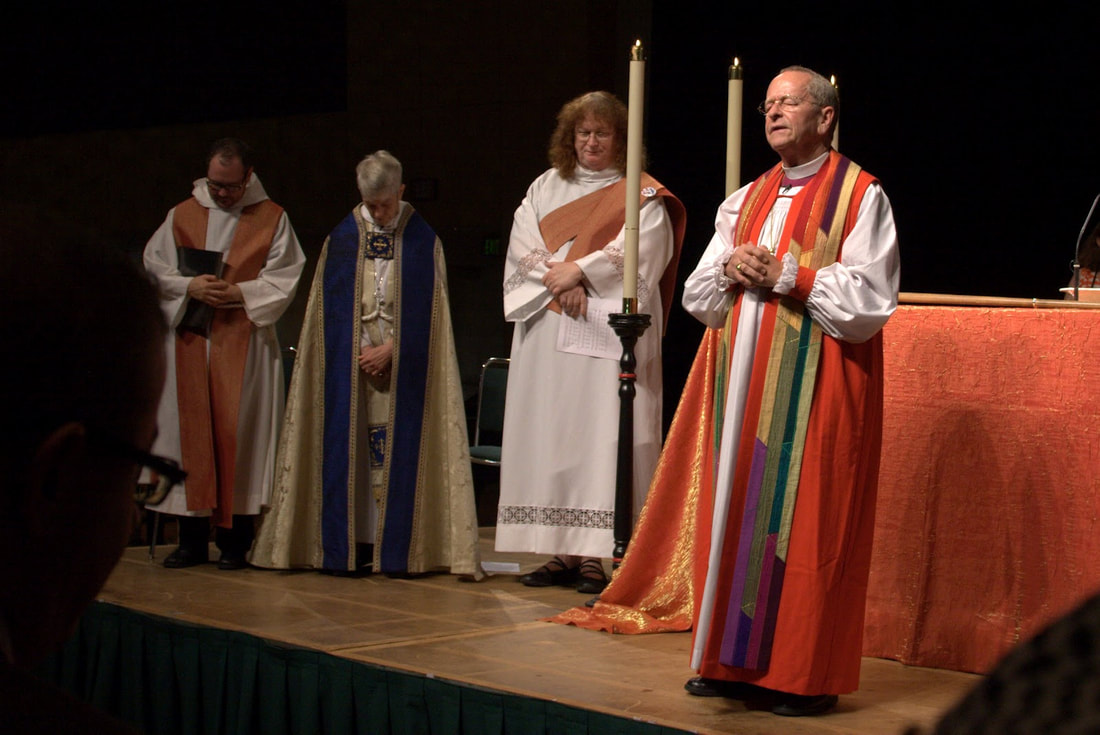
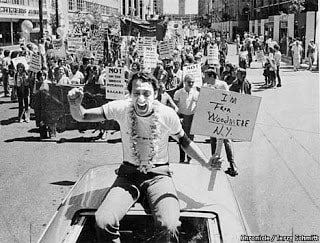
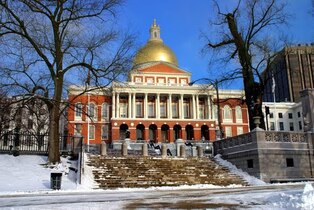
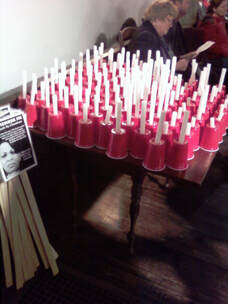
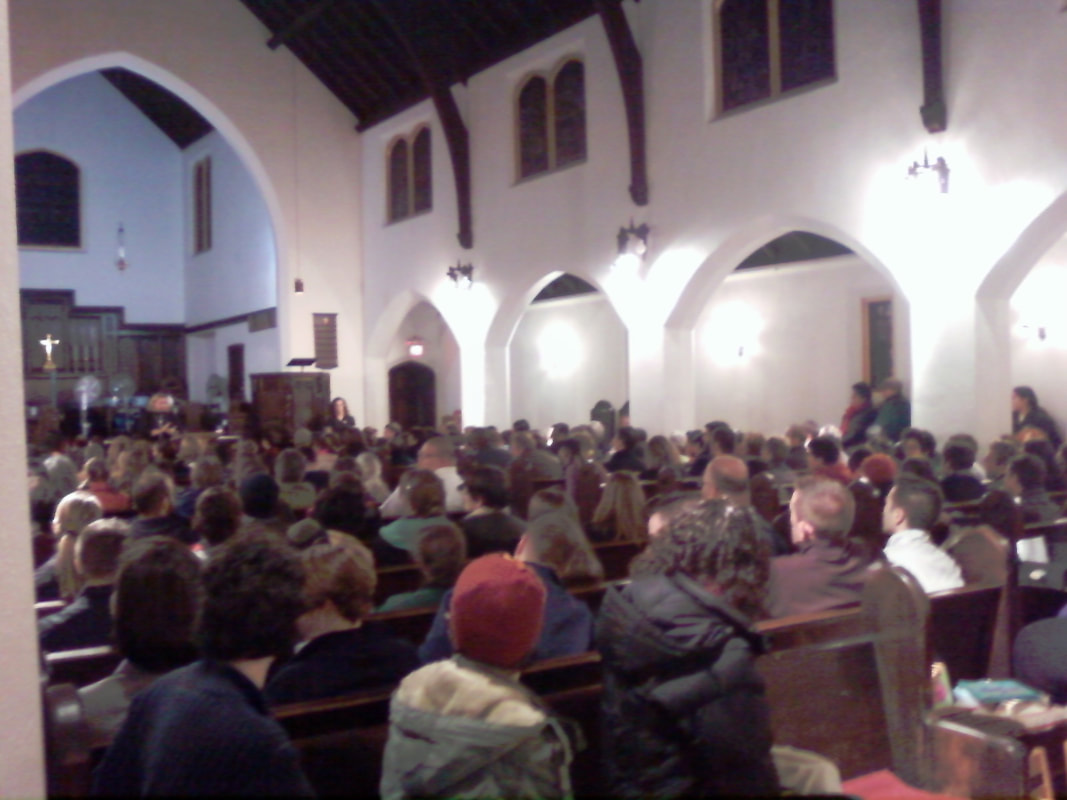
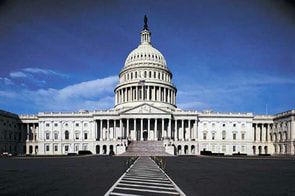
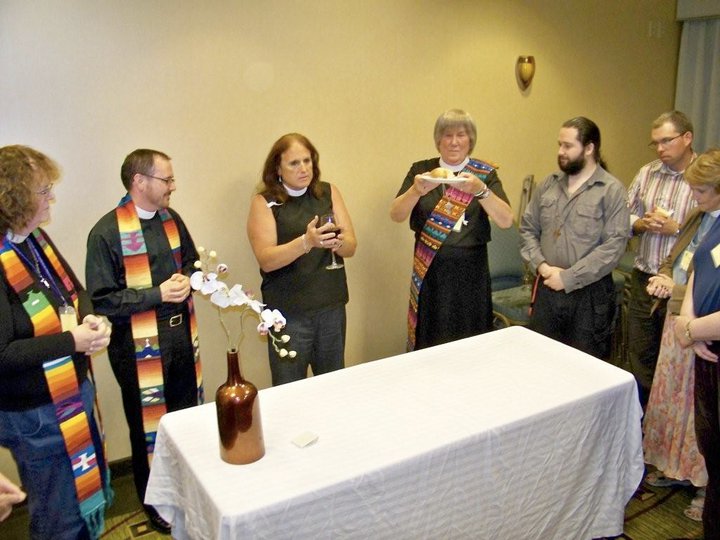
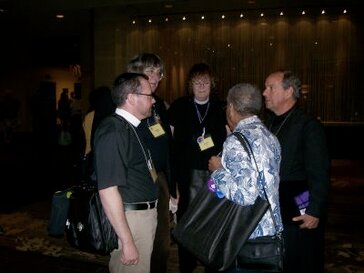
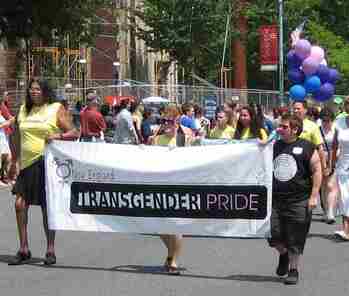
 RSS Feed
RSS Feed